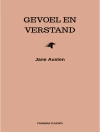Der Ursprung der Gürteltiere Rudyard Kipling – Dieses, o Meistgeliebte, ist eine weitere Geschichte aus den Erhabenen und Lang-Vergangenen Zeiten. Genau in der Mitte dieser Zeiten gab es einen stachlig-pieksigen Igel, und der lebte an den Ufern des schlammigen Amazonas, wo er schalige Schnecken und so was fraß. Und er hatte einen Freund, eine bedächtig-solide Schildkröte, die an den Ufern des schlammigen Amazonas lebte und sich von grünem Salat und so was ernährte. Und so weit war alles in Ordnung, Meistgeliebte. Verstehst du?
Aber außerdem, und zur gleichen Zeit, in jenen Erhabenen und Lang-Vergangenen Zeiten nämlich, gab es da einen Scheckigen Jaguar, und der lebte auch an den Ufern des schlammigen Amazonas; und er fraß alles, was er kriegen konnte. Wenn er keine Hirsche oder Affen kriegen konnte, fraß er Frösche und Käfer; und wenn er keine Frösche und Käfer kriegen konnte, ging er zu seiner Jaguarmutter, und sie erklärte ihm, wie man Igel und Schildkröten frißt.
Sie sagt es ihm so vielmals, wobei sie graziös mit dem Schwanz wedelte: »Mein Sohn, wenn du einen Igel findest, mußt du ihn ins Wasser werfen, dann wird er sich auseinanderrollen, und wenn du eine Schildkröte fängst, mußt du sie mit deiner Pfote aus ihrem Panzer kratzen.« Und damit war das in Ordnung, Meistgeliebte.
Tentang Penulis
Joseph Rudyard Kipling (December 30, 1865 – January 18, 1936) was an English author and poet, born in India, and best known today for his children’s books, including The Jungle Book (1894), The Second Jungle Book (1895), Just So Stories (1902), and Puck of Pook’s Hill (1906); his novel, Kim (1901); his poems, including Mandalay (1890), Gunga Din (1890), and ‘If—’ (1910); and his many short stories, including ‘The Man Who Would Be King’ (1888) and the collections Life’s Handicap (1891), The Day’s Work (1898), and Plain Tales from the Hills (1888). He is regarded as a major ‘innovator in the art of the short story’; his children’s books are enduring classics of children’s literature; and his best work speaks to a versatile and luminous narrative gift.
Kipling was one of the most popular writers in English, in both prose and verse, in the late 19th and early 20th centuries. The author Henry James famously said of him: ‘Kipling strikes me personally as the most complete man of genius (as distinct from fine intelligence) that I have ever known.’ In 1907, he was awarded the Nobel Prize in Literature, making him the first English language writer to receive the prize, and he remains today its youngest-ever recipient. Among other honours, he was sounded out for the British Poet Laureateship and on several occasions for a knighthood, all of which he rejected.
However, later in life Kipling also came to be seen (in George Orwell’s words) as a ‘prophet of British imperialism.’ Many saw prejudice and militarism in his works, and the resulting controversy about him continued for much of the 20th century. According to critic Douglas Kerr: ‘He is still an author who can inspire passionate disagreement and his place in literary and cultural history is far from settled. But as the age of the European empires recedes, he is recognized as an incomparable, if controversial, interpreter of how empire was experienced. That, and an increasing recognition of his extraordinary narrative gifts, make him a force to be reckoned with.’












